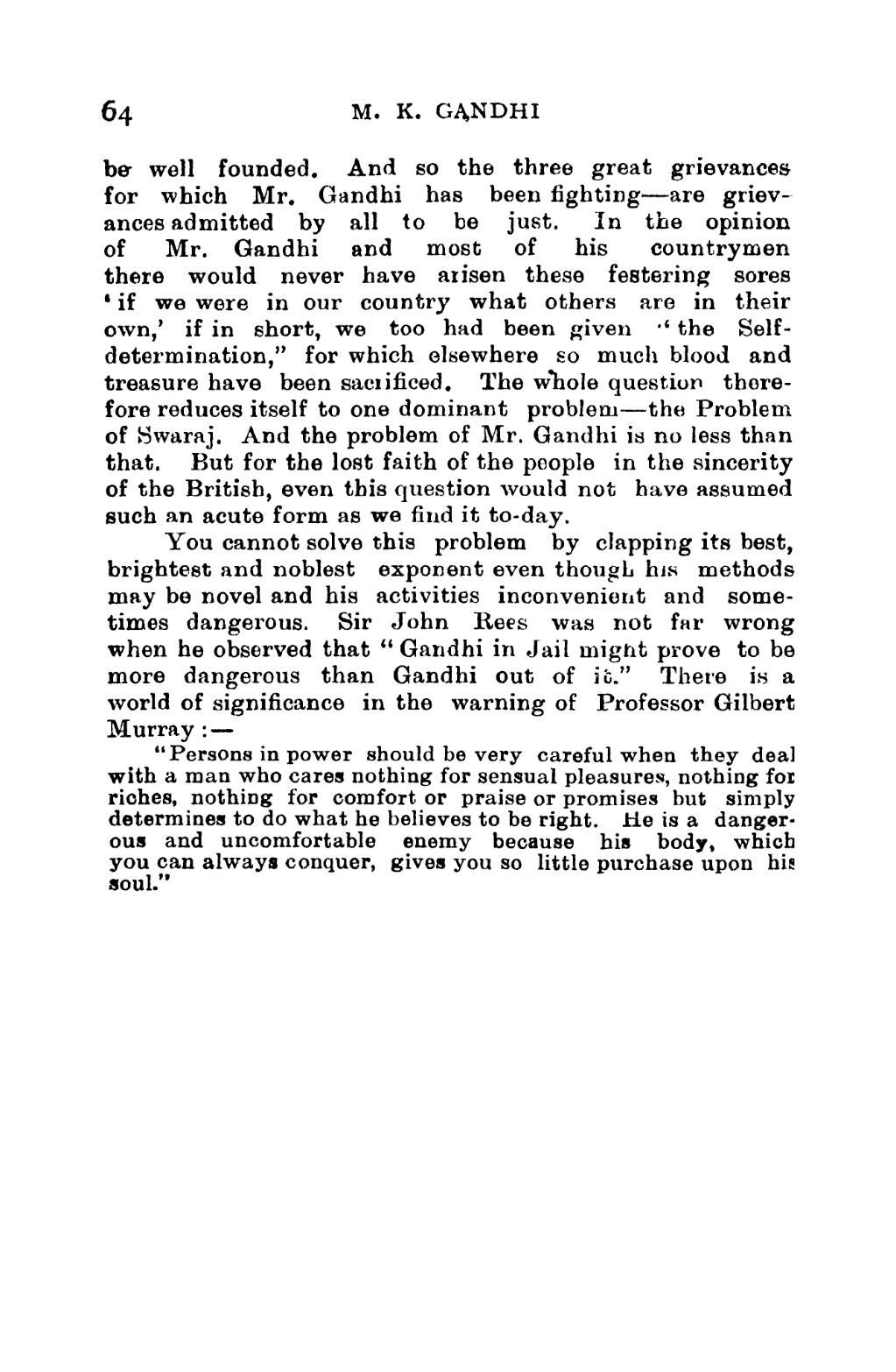be well founded. And so the three great grievances for which Mr. Gandhi has been fighting—are grievances admitted by all to be just. In the opinion of Mr. Gandhi and most of his countrymen there would never have arisen these festering sores if we were in our country what others are in their own, if in short, we too had been given “the Self-determination," for which elsewhere so much blood and treasure have been sacrificed. The whole question therefore reduces itself to one dominant problem—the Problem of Swaraj. And the problem of Mr. Gandhi is no less than that. But for the lost faith of the people in the sincerity of the British, even this question would not have assumed such an acute form as we find it to-day.
You cannot solve this problem by clapping its best, brightest and noblest exponent even though his methods may be novel and his activities inconvenient and sometimes dangerous. Sir John Rees was not far wrong when he observed that "Gandhi in Jail might prove to be more dangerous than Gandhi out of it." There is a world of significance in the warning of Professor Gilbert Murray:—
"Persons in power should be very careful when they deal with a man who cares nothing for sensual pleasures, nothing for riches, nothing for comfort or praise or promises but simply determines to do what he believes to be right. He is a dangerous and uncomfortable enemy because his body, which yom can always conquer, gives you so little purchase upon his soul."

